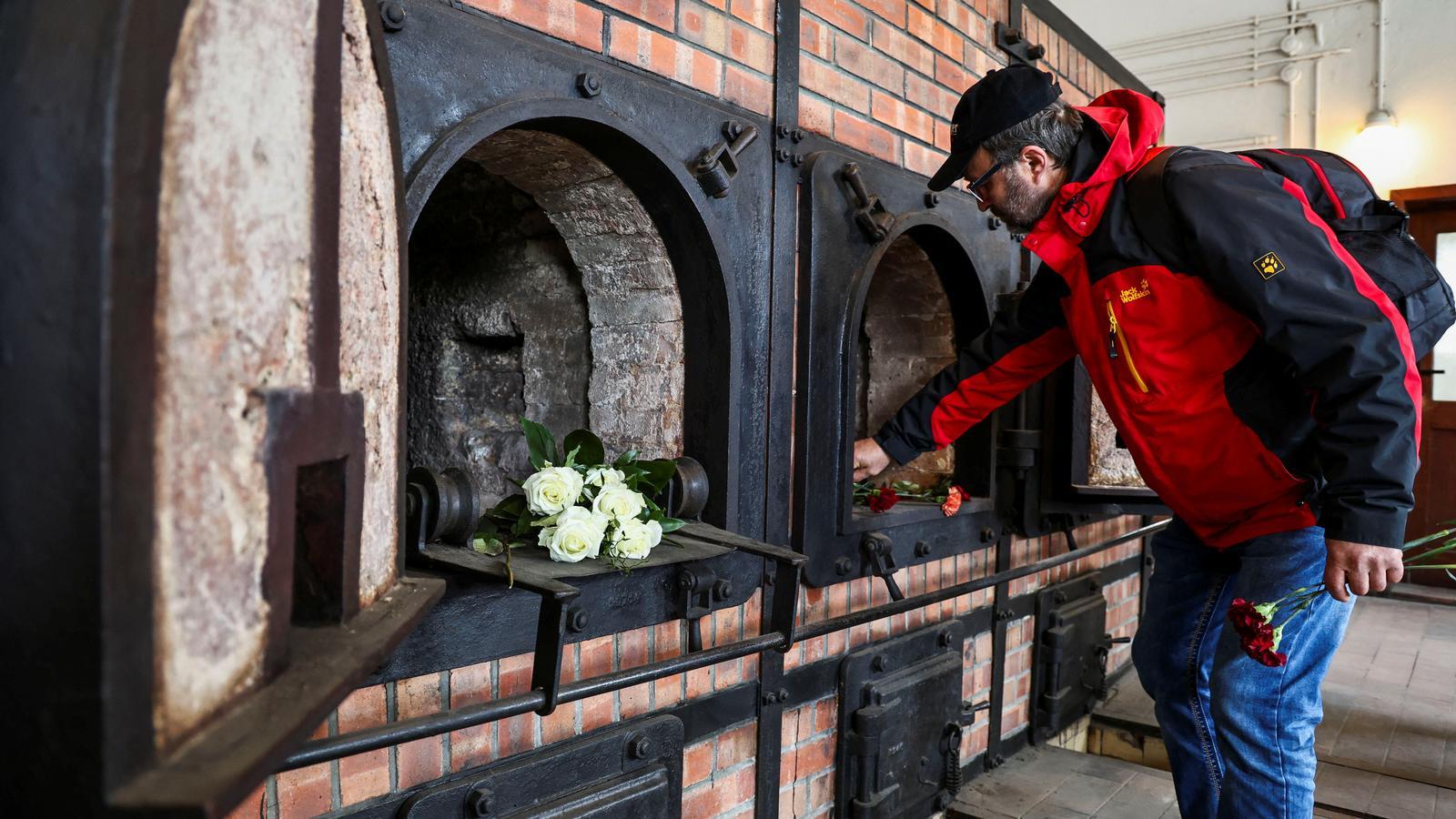
This year 2025, the 80th anniversary of the liberation of the Nazi campsThe anniversary of the end of the Second World War and, with it, the end of one of the cruelest episodes in human history. The dehumanization and the planned, industrial murder of millions of people in the concentration and extermination camps of the Third Reich. An event that has since unhinged humanity's conscience, called into question its very essence, and, as Elie Wiesel, a survivor of Auschwitz and Buchenwald, aptly put it, "after Auschwitz, the world was never the same again."
However, this year at Buchenwald, in April, during the international ceremony for the liberation of the camp, an exceptional event took place. A group of young students, members of the Amical de Buchenwald group, had been invited by the International Committee of Buchenwald and Dora to speak at the main event. With the support of the faculty and Amical, they had drafted a manifesto intended to represent the thinking of European youth on this important anniversary.
Thus, on Sunday, April 6, early in the afternoon, when their turn came, the twenty or so young people went out to theappellplatz From the camp, and in front of hundreds of people, political representatives from different countries, members of the International Committee, families of the deportees and survivors, three girls from three high schools in Spain read the manifesto. A manifesto, in our opinion, extraordinary, which perfectly summarized the denunciation of current injustices in the world, the danger of the extreme right, which appealed to the spirit of the Buchenwald oath and the teachings of Jorge Semprún or Stéphane Hessel, and above all, it held us all up to the mirror and put us all up to the mirror and put us all up to the mirror of action.
But the girls, also with the rebellion typical of their age, and after listening to Weimar and Buchenwald, in official events, all kinds of justifications for Israel's positions and not a single word or empathy for what is happening in Gaza, thought that this was the ideal place and the right time to denounce what is happening now, neither foreseen nor agreed upon with the CIBD (International Committee of Buchenwald and Dora), in which they denounced the current wars and especially the genocide being committed in Gaza.
And that's where the conflict began. The young reader's words caused a notable stir among the new president of the International Committee, the outgoing president, a Jewish representative, and the director of the Buchenwald Camp Memorial himself, who rushed to demand explanations and discredit the intervention. Subsequently, other members of the ICBD, representing countries with Jewish origins, began sending out emails condemning the young women's intervention and, consequently, condemning the person who had supposedly allowed and facilitated it, the signatory of this article.
Israel is committing genocide
Representatives from some countries at the CIBD called the intervention and the girls' words antisemitic, even though we explained in several responses that this was not the case, and that the girls and the Spanish delegation from Amical were very clear about the distinction between the Zionist government of Israel and the Jewish people. Without forgetting that the Palestinian people are also Semitic.
This event, surely relevant and attracting the interest of many media outlets, calls for a broad reflection. It concerns what to say and what not to say at an event of this nature, the relationship between past and present events, and, naturally, who owns the heritage of people's suffering and the value of each thing.
It's obvious that Israel is committing genocide. And time is proving right these brave young women who dared to denounce it at Buchenwald. Using hunger and thirst as weapons of war, destroying schools and hospitals, murdering doctors and nursing staff, journalists, playing with the civilian population by forcing them into forced displacement, trying to find some food amidst gunfire and bombings, has no other name: genocide.
The rejection this statement provoked at Buchenwald is incomprehensible. It's incomprehensible that descendants of Holocaust victims felt offended and demanded explanations. They, who should be the most sensitive to the suffering in memory of their own history, are also incomprehensible. the paralysis of the international community is incomprehensiblel, and he role that Germany is playing in this conflict. They still seem to be carrying a huge guilt complex.
Both the girls and we can understand the complexity of the situation. And the gravity of the Xoà. But with the legitimacy that comes from being heirs to the suffering of the Spanish Republican victims in this concentration camp, and because we had to be faithful to the Buchenwald oath, I believe that precisely here we had the obligation to denounce the injustices, the wars, the rise of the extreme right, and, why not, what has been committed throughout the world throughout history. Why shouldn't we be able to talk, in Buchenwald and in the other Nazi camps, about the genocides in Rwanda, in Armenia, of the Rohingya in Myanmar, of the mass murderers and war crimes that are taking place in Ukraine or Palestine?
